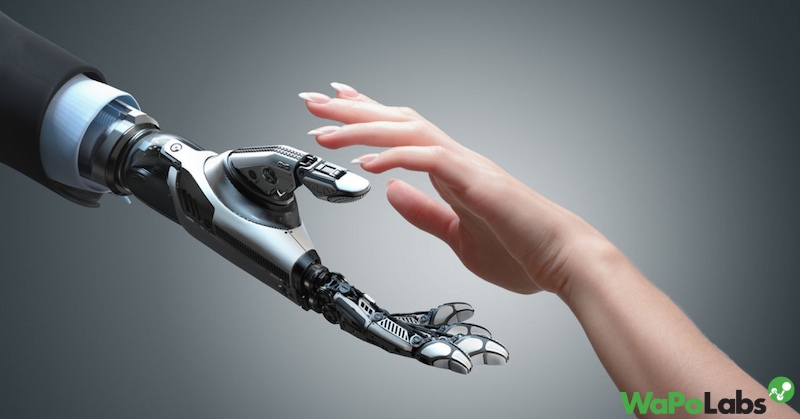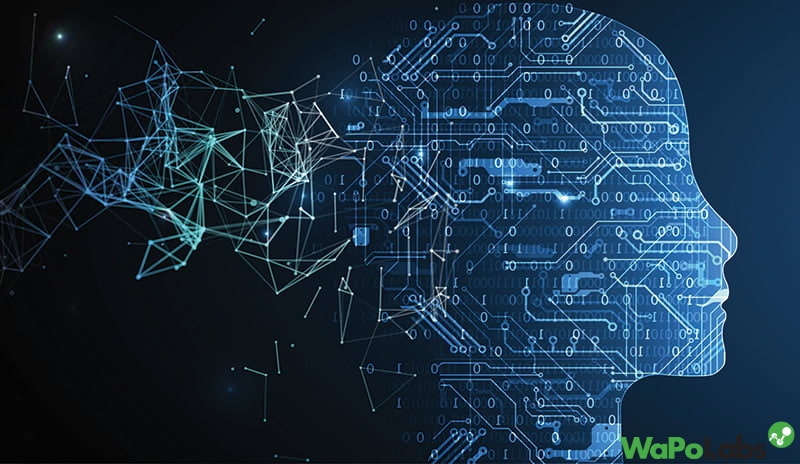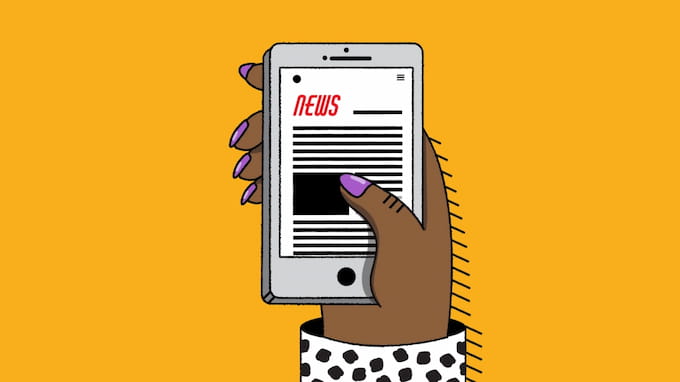It is becoming obvious that the use of artificial intelligence (AI) inside mental health services might be a game-changer for offering more effective and individualized treatment strategies. AI therapy helps refine therapist approaches and training in addition to providing additional insight into patients’ demands. Find out more information about artificial intelligence therapy in this article.

What is Artificial Intelligence Therapy?
Artificial intelligence therapy is a kind of conversational machine-learning software that is used to detect and monitor users’ emotional states. AI therapists may provide therapeutic support that improves human therapy activity by creating individualized mental health coping mechanisms and health-related reminders.
Natural Language Processing is used during interaction via already-established forms of communication such as mobile apps, SMS, web browsers, and video conferencing systems (NLP). The conversational interface between the client and the counselor is fed by communication data repositories from the patient and dynamically adjusts to each patient’s unique mental health status.
Recent research is looking at using NLP to provide proactive mental healthcare and help with early diagnosis.
AI therapeutic help may be contacted at any time by being constantly accessible online as an app or operational system, answering queries and offering comments. In order to help consumers navigate their mental states, AI treatment may include on-demand mental health assistance, daily mood monitoring, and data visualization charts.

How Can AI Therapy Help with Mental Health?
AI for mental health is already making inroads into clinical practice. The following innovations in particular have the greatest potential to make an impact:
Deep learning (DL) and machine learning (ML) increase the precision of mental health diagnosis and patient outcome prediction.
Understanding non-verbal signs like facial expressions, gestures, eye gaze, or human stance using computer vision for image analysis
In order to create and comprehend clinical documentation, chatbot computer systems simulate human interactions using natural language processing (NLP) for voice recognition and text analysis.
While research on the use of AI for mental health therapy is still in its early stages, ML algorithms and computer vision applications are very established domains with widespread use cases across sectors.

Here are 5 ways artificial intelligence therapy has enhanced mental health treatment.
Maintaining high standards for treatment via quality control
Some mental health clinics are looking at automated solutions to check quality control among therapists due to an increase in demand for services and workloads becoming overburdened.
Improving diagnosis and selecting the appropriate therapy
AI is assisting physicians in identifying mental illness sooner and selecting more effective treatment options. Insights from data, according to researchers, may be used to better connect potential clients with therapists and determine which kind of treatment would be most effective for a certain person.
Additionally, AI research may assist physicians to tailor therapy by grouping patient diagnoses into various conditions.
With the use of artificial intelligence (AI) technology, therapists may sift through vast quantities of data to find family histories, patient behaviors, and reactions to earlier therapies, allowing them to make a more accurate diagnosis and wiser therapy and therapist selection options.
Tracking patient progress and altering treatment
After being matched with a therapist, it is important to keep track of the patient’s progress. AI may assist in determining whether a therapy modification is necessary or if it’s time for a new therapist.

Helping triage patients
With AI’s assistance, we can more quickly match patients with the optimal healthcare provider for their particular symptom presentation. Before receiving the appropriate care and diagnosis for this ailment, a patient typically sees seven different medical practitioners or other specialists. The number of visits needed to identify the right expert may be decreased by using technologies to triage people for mental health treatment.
Offering personalized healthcare treatment
Different sorts of mental health issues as well as distinct personality qualities will react best to a certain form of treatment, therapist, or medicine, and each person has their own special requirements.
For instance, a patient today may have to test a variety of medications before discovering the one that would treat their depression the best. By seeing patterns and gathering information to speed up this process, machine learning may contribute to breakthroughs.
Benefits of Using Artificial Intelligence Therapy
The following advantages that artificial intelligence therapy offers may be used to explain the hopes placed in its applications and platforms for mental health care:

Affordability
In contrast to conventional therapy, where sessions must be scheduled and traveled to, AI-based and other mental health applications enable users to obtain therapeutic treatment whenever and wherever they need it. In contrast to the expenditures of in-person treatment, lost work, the need to make other arrangements, and transportation, they also provide assistance at little to no cost.
Accessibility
The absence of providers in rural and isolated places as well as general staff shortages are hurdles to mental health care that are eliminated by AI-based applications. This is significant since there are more than 100 million residents of so-called Health Care Professional Shortage Areas in the US. AI chatbots and platforms that are not limited by geography can see you whenever you want and spend as much time with you as you want.
Efficiency
By examining behavioral signals, artificial intelligence systems for mental healthcare have already shown their ability to accurately identify signs of depression, PTSD, and other illnesses. According to other research, algorithms are 100% accurate in predicting which kids are at risk for developing psychosis. They can also identify behavioral signs of anxiety with over 90% accuracy.
They also assist patients who are experiencing mental distress: Woebot developers of the AI chatbot found that after only two weeks of using the program, users’ levels of anxiety and despair significantly decreased.
Privacy and simplicity of opening
People feel less self-conscious when talking about humiliating topics with AI-based therapists. This is crucial for people who experience shame in face-to-face encounters due to stigma or apprehension about being judged.
In reality, about a quarter of individuals lie to physicians, with smoking, drinking, and sexual behavior being the most taboo subjects. Because a robot won’t criticize them, many people find it simpler to reveal the full depth of their conduct to one.

Assistance for therapists
Clinicians could find that using AI effectively would help them get the most out of their time with patients. This is due to the fact that AI is capable of tracking and analyzing large volumes of data more quickly and effectively than any human.
Algorithms thus aid in more precise diagnosis. By observing the patient’s attitude and behavior, they may also identify warning signals of potential problems early on and notify professionals so that treatment plans can be modified right away. For patients who require frequent check-ins and are suicidal, this might be life-saving.
Winning Combination: Artificial Intelligence Therapy with Human Expertise
We can connect the dots and make progress more rapidly than we could on our own by using AI to analyze enormous volumes of large data and identify patterns.
For instance, AI can identify patterns in complicated data like family history, successful prior therapies, patient behavior, and other aspects to deliver a more accurate diagnosis and assist both the patient and doctor in getting the best result. Even while AI is best suited to synthesize these jobs, human-to-human interactions requiring empathy are still best left to people.
The future of mental health is full of possibilities thanks to the potent mix of human knowledge, talents, and capacities with tools from artificial intelligence.

The Future of Mental Health with Artificial Intelligence Therapy
Finally, merging the knowledge of both healthcare experts and AI technologies will have fascinating future implications for mental health. Since 1 in 7 individuals worldwide experience mental health issues, increasing access to resources and developing new forms of therapy are essential to preserving both mental and physical health.
AI is positioned to close a gap in the mental health sector and expand access in a simple, economical, and effective manner.

The Bottom Line
The field of artificial intelligence therapy has both enormous potential and numerous challenges on a whole new level.
Compliance with the General Data Protection Regulation (GDPR), the Health Insurance Portability and Accountability Act (HIPAA), and other industry-specific rules may be a difficulty, as is the case with many healthcare applications. However, there is a great deal more to it when it comes to artificial intelligence.
The potential for bias in AI therapy, which might emerge as a result of a lack of databases or databases of low quality, is one of the most critical obstacles that must be overcome when using AI in the field of mental illness. Another difficulty is that there is a lack of transparency regarding the usage of algorithms and their decision-making logic, which might limit the adoption of AI owing to a general feeling of mistrust.
Because AI therapy often needs huge volumes of sensitive healthcare data in order to work successfully, there are additional issues about the privacy and security of patient data. In conclusion, integrating AI tools into pre-existing healthcare systems may be challenging and time-consuming. This is particularly the case when considering the fact that a large number of healthcare personnel need training in order to make efficient use of AI-based solutions.
Nevertheless, artificial intelligence therapy is still a work in progress, and we are aware that we are making progress in this area. As we continue to make progress toward a future in which AI will be able to assist us in providing individuals in need of mental healthcare with improved services, undoubtedly new breakthroughs will emerge. The problem in mental health has to be addressed, and artificial intelligence therapy has the potential to play a significant role.
Above are the best sharing about “artificial intelligence therapy” from Wapolabs. Hope you are satisfied with this information.
Wapolabs USA
- Address: 1301 K Street NW Washington, D.C., U.S. 20071
- Phone: 0190-8286
- Email: [email protected]
- Twitter: https://twitter.com/wapolabs/
